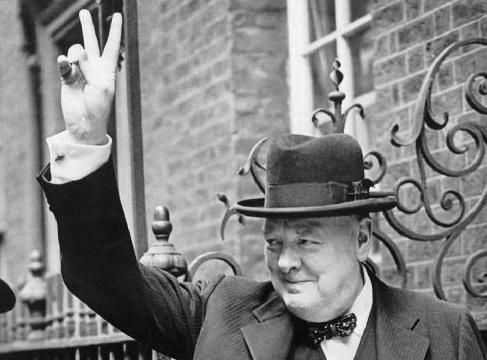
Winston Churchill: photo - wikicommons
After leader of the Polish-government-in-exile in London, General Sikorski called for an international investigation into the 1940 Katyn massacre, where 21,000 Polish officers were murdered, British Prime Minister Churchill agreed with Stalin that the idea should be opposed.
“We shall certainly rigorously oppose any “investigation” by the International Red Cross or any other body in any territory under German authority,” Churchill quotes a telegram he sent Stalin in a cable to US President Roosevelt.
“Such [an] investigation would be fraud and any conclusion reached by terrorism,” Church continues.
The Soviet Union blamed the Nazis for the massacre, only to finally admit in the early 1990s that Stalin's secret service (NKVD) officers were responsible for the crime.
The US National Archives and Records Administration released over 2,000 pages of files, Monday, including newly declassified information, which the American Embassy in Warsaw said in a statement “will greatly contribute to our knowledge about this crime against the Polish Nation”.
According to the declassified files, Churchill said he told Stalin that General Sikorski was in a “difficult position”, as he was under pressure in Poland to show he was standing up to the Soviet Union.
“If [Sikorski] should go then we should end up with someone worse,” Churchill says of the Polish leader in April 1943.
After British foreign minister, Anthony Eden urged Sikorski to drop calls for an international investigation into the Katyn massacre, Church reported to Stalin on 23 April 1943: "As a result of Eden's strong representations Sikorski has undertaken not to press request for Red Cross investigation and will so inform the Red Cross authorities in Berne. He will also restrain Polish press from polemics.
“In this connection,” Churchill continues, “I am examining possibility of silencing those Polish papers in this country which attack the Soviet Government and at the same time attack Sikorski for trying to work with the Soviet Government.”
Church was desperate to maintain diplomatic relations between Poland and the Soviet Union so as not to offer a propaganda coup for Hitler, he said, and weaken the allied effort.
But the British attempt to maintain contacts came too late.
Stalin answered Churchill's cable by stating in a return telegram dated 25 April 1945: “I would like to point out that the interruption of [Soviet] relations with the Polish government is already decided and today [Soviet foreign minister] V M Molotov delivered a note to this effect. Such action was demanded by my colleagues as the official Polish press is ceaselessly pursuing and even daily expanding its campaign hostile to the USSR.” (pg)